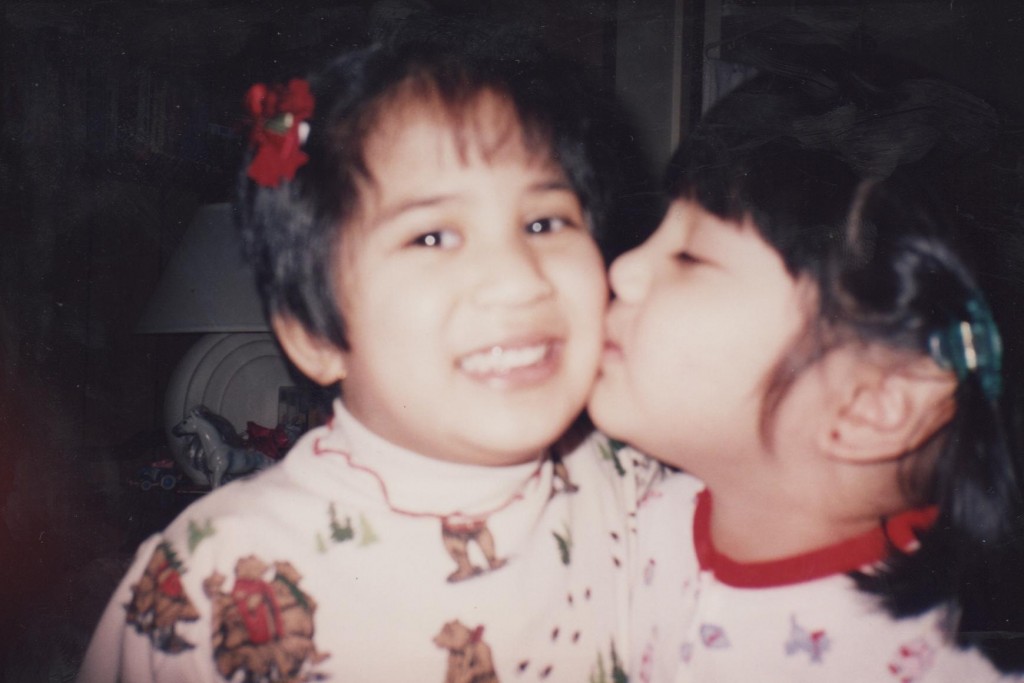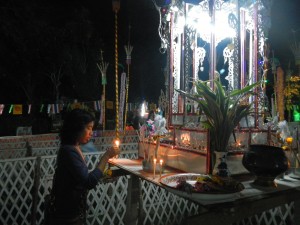THWACK
A thin bar of plastic had descend on my shoulder. A hanger and my older sister wielding it.
SMACK
My sister was crying. My clenched fist had just collided with her stomach.
I was not quite ten and she not quite fourteen.
If you have siblings then you probably are, I venture to say, familiar with this type of experience. Growing up with two sisters – who were more like brothers when they were angry – I have experienced, and inflicted, my fair share of emotional and physical blows. I cannot count how many times I’ve been hit, punched, bitten or screamed at. How often I heard the words, “I hate you!" or felt the sting of a cold shoulder is beyond me. When we fought—and we fought A LOT—no feelings were spared, no insult was unused and at least one of us walked away with a bruise.
When I reminisce about all the childhood clashes that classified my sisters as enemies, two things happen. One, I realize that my sisters and I were little barbarians when we were younger. I mean when you resort to biting an adversary, you've regressed a few evolutionary steps. Two, I look at us now and wonder how did three people who could so easily "hate" each other become three people who could not live without one another? I suppose some of it has to do with getting older. As the number on our birthday cakes increased, the petty differences that pitted us against one another dwindled in importance. But was it really just time that changed us? Definitely not.
A blur of flying fists and ugly words — especially now, more than a decade later— I remember very few details about our fights. What I do remember is my father saying this:
"Love your sisters. At the end of the world, your family is all you have."
Repeated each time I ran to my room in tears, my dad's advice became tradition. No argument felt complete unless it ended in his voice and these words. There seems nothing abnormal about this; just a father trying to mediate between his bickering children. However, there was strange and remarkable about this advice: I didn't have to fling a toy at my sisters to hear it. Any situation in which my dad had my attention, he found some way to remind me how essential my family is (the man could turn conversation about Christmas dinner into a sermon about family!). But however much fun I like to poke at my father's lessons, they worked. There is no one I trust more than my little sister, no one I can joke around with like my Ate. And as I became older, I began to understand these values were not exclusive to just my family. Like the eight-rayed sun, close family bonds are indicative of the Pilipino culture.
The family stands at the center of the Pilipino culture. A beautiful feature that only adds to the richness of our culture, many Pilipinos - myself included - do not often ask why. Why is family such a crucial part of life for Pilipinos? According to Ador Vincent Mayol in the Global Nation Inquirer, religion is the driving force behind this mentality. Mayol asserts that the family is a gift from God and as a cohesive unit it is a representation of the Lord. It is no surprise, then, that the arduously Catholic Pilipinos feel the need to strengthen family ties as another means of showing reverence to God. No doubt, the family, my family, is a great blessing. However, I would like to share a different possibility.
The Philippines is a poor country. Yes, it houses the very modernized, very affluent Manila, but the greater majority of this island nation is in a state of seemingly perpetual poverty; its poverty level have remained stagnant for the past six years. So impoverished is the Philippines that the goal of many of its younger residents is to leave the country, unwilling to raise a family in these dire conditions. This is a disheartening fact, but it is one that, I believe, encourages Pilipino families to develop such unshakable relationships. When you have no financial stability and very few material possessions, and when you live in fear that at any moment you could be removed from school because of insufficient funds, the only constant thing is your family. In a country whose economic state is constantly testing the physical and emotional resilience of its people, the family in the Pilipino culture is a gold mine of strength. It is the cushion for when one falls and the holler of joy when one succeeds. The family provides, for Pilipinos, a sense of togetherness and emotional stability vital in a situation earmarked by toil and inconsistency.
Am I glad that my parents, my titos and titas, my grandparents faced such hardship? Never. No one should have to wonder if they'll have enough money to buy a decent meal or suitable clothes. However, I do consider myself lucky having been born to Pilipino parents, born into a culture defined by endurance and a clear understanding about the importance of family.
"We never had a lot, but we always had each other." -Glenn Estavillo, my dad


